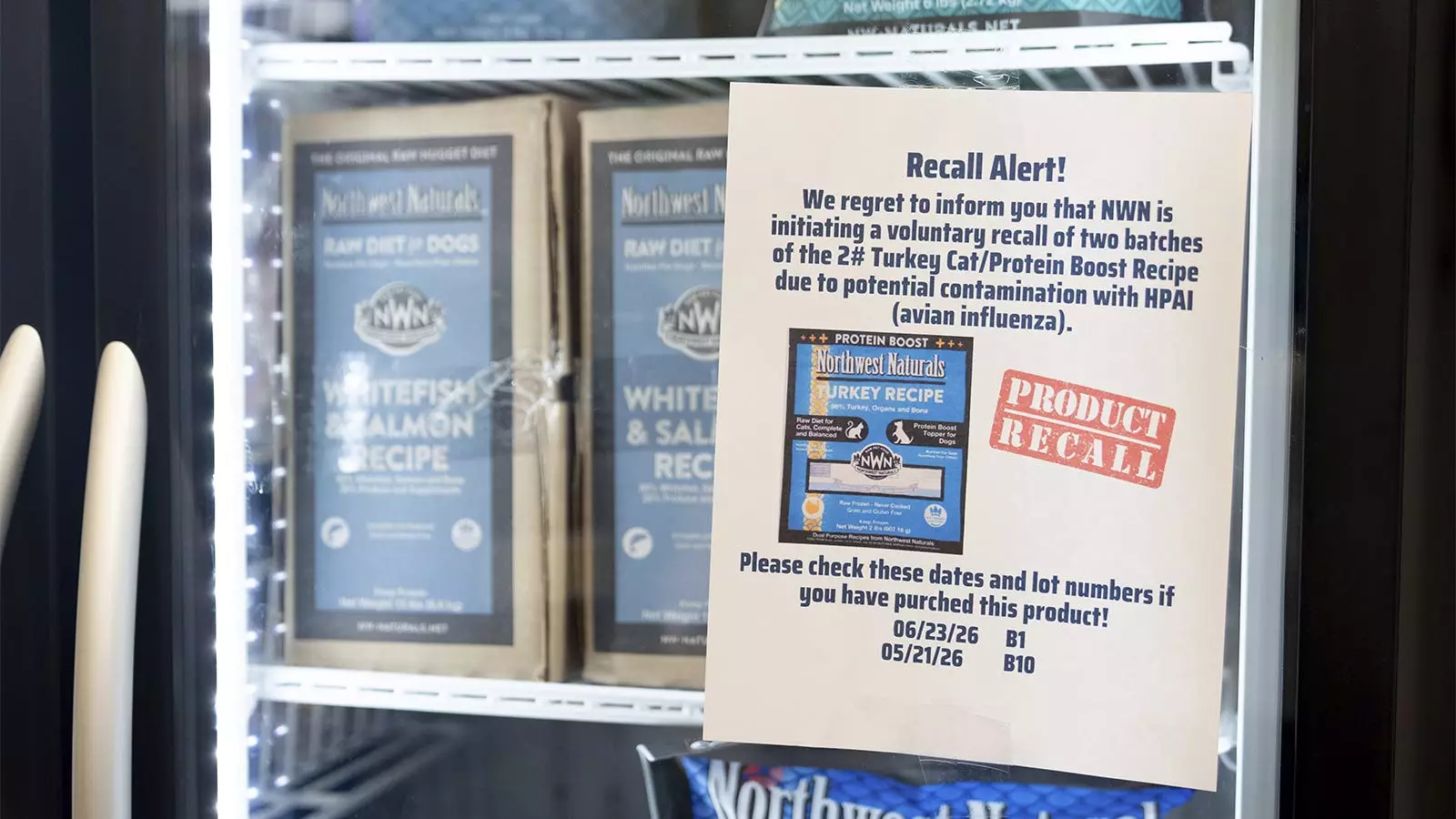The recent unfortunate death of a house cat in Oregon has reignited concerns about the risks of avian influenza, commonly referred to as bird flu, to domestic pets. This incident coincides with a significant recall of pet food products, showcasing a troubling intersection of wildlife disease spread and household pet health. Bird flu, which has long existed in various avian populations, has now made its presence felt among mammals, including livestock and, more alarmingly, house pets. The first notable instance within U.S. dairy cattle occurred in March, and since then, sporadic human infections linked to farms have been reported — a stark reminder for pet owners about the potential hazards of raw diets and food safety.
Health investigators in Oregon concluded that the cat’s illness stemmed from frozen pet food that contained raw turkey, establishing a direct link between the contaminated food supply and the unfortunate case of the feline. The virus identified in the food matched that recovered from the deceased cat. This troubling revelation serves as a reminder of the possible dangers associated with feeding pets raw meat, a dietary trend that several pet owners have adopted. The president-elect of the American Veterinary Medical Association, Dr. Michael Q. Bailey, emphasizes that improper handling and raw consumption can expose pets to severe health risks, including the avian flu virus, underlining the importance of thorough cooking to mitigate these dangers.
Understanding the Risk: Feline Vulnerability to Bird Flu
While human infections from bird flu remain rare, felines appear particularly vulnerable to the H5N1 strain. Since the initial dairy cattle outbreak, there have been several reported cases among domestic cats, including both barn cats and those kept entirely indoors. This vulnerability has prompted health officials, such as those from the Los Angeles County Department of Public Health, to investigate other instances of illness across the state, particularly concerning a recent spike in cat fatalities following consumption of recalled, unpasteurized dairy products.
Dogs, on the other hand, seem to exhibit a lower risk profile, but pet owners are still strongly advised to ensure that their canine companions consume only thoroughly cooked meals. As such, protecting our pets from potential exposure must be a priority for responsible pet ownership.
For pet owners, immediate action can be undertaken to protect their feline friends from potential infection. First and foremost, it is imperative to completely avoid feeding cats raw meats or unpasteurized dairy products. Furthermore, minimizing exposure to wild birds, poultry, and livestock is critical; allowing cats to roam freely outdoors compromises their safety due to their natural instinct to hunt birds.
Veterinarians advise against personal handling of sick or deceased birds, and offer the prudent guidance of maintaining exemplary hygiene after contact with any animals, including poultry. These simple measures can significantly minimize the risk of disease spread from wild to domestic populations.
Recognizing Symptoms: What to Watch For in Cats
Another critical aspect of safeguarding feline health lies in identifying the symptoms of bird flu. Warning signs can include sudden loss of appetite and abnormal lethargy. Owners should monitor their cats closely — changes in behavior, such as increased hiding or decreased playfulness, may indicate underlying health issues. Other potential symptoms include eye discharge, inflammation, and respiratory distress, which require immediate veterinary attention. If a cat does show these signs, it is essential to keep it away from vulnerable individuals, like those with weakened immune systems, until professional help can be sought.
Pet owners must remain vigilant regarding product recalls affecting their pets’ nutrition. Notably, Northwest Naturals issued a voluntary recall on certain batches of their Feline Turkey Recipe raw frozen food after finding evidence of the bird flu virus. This recall extends to various states, emphasizing the necessity for consumers to dispose of affected products and to seek refunds where applicable.
Heightened awareness and proactive measures can significantly enhance the well-being of our pets during this time of heightened risk. Educating oneself on food safety and adhering to veterinary recommendations are key aspects of responsible pet ownership in the face of the ongoing threat of avian influenza.


Leave a Reply